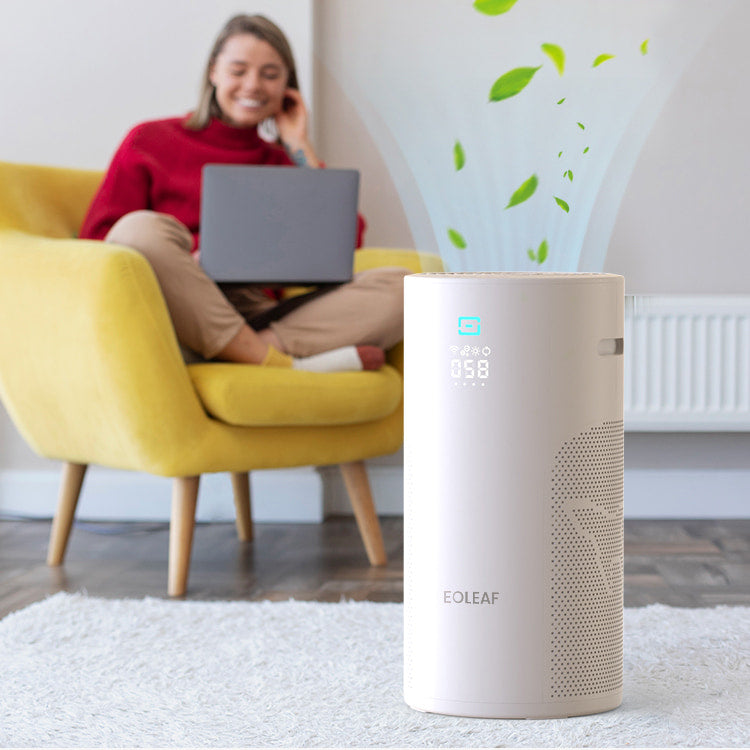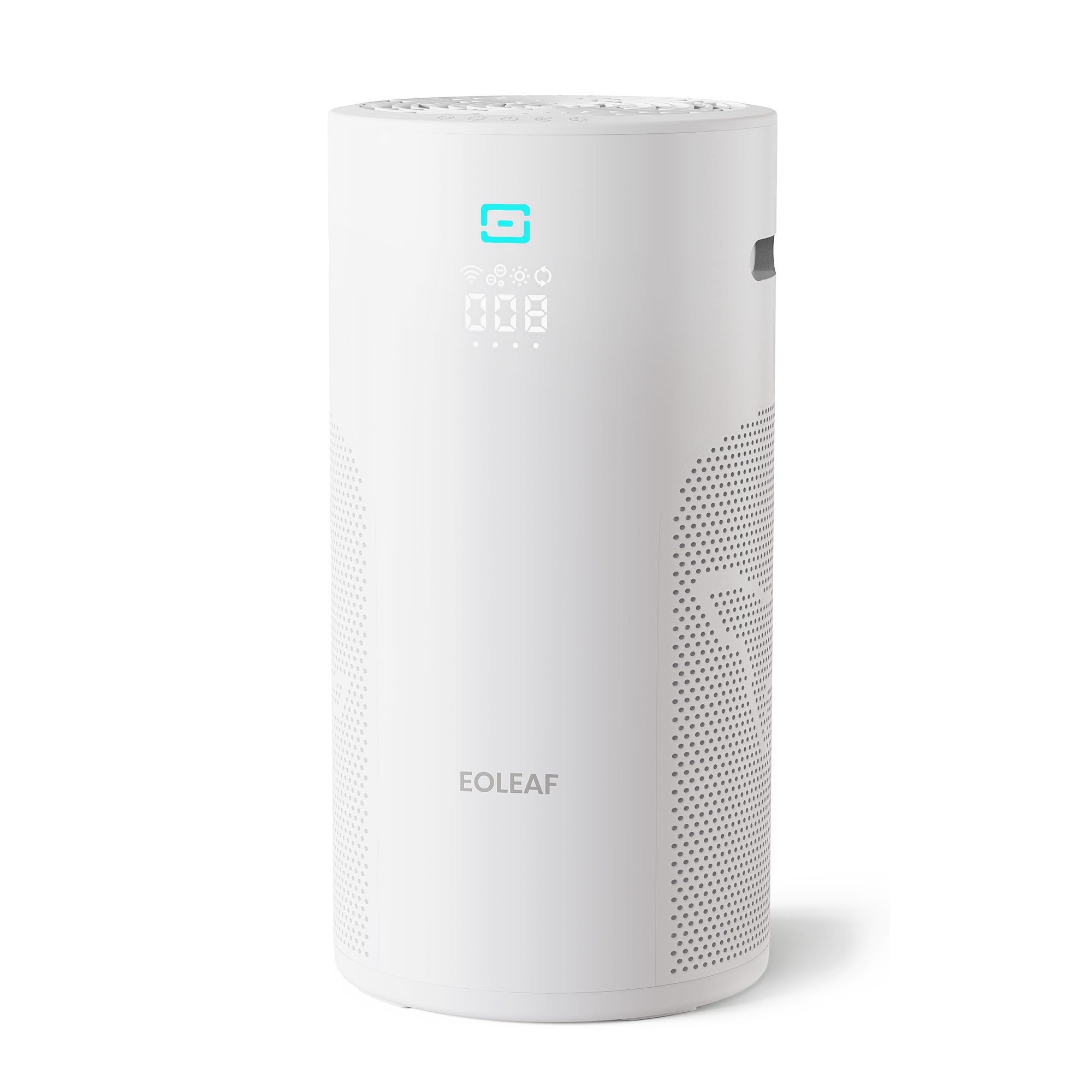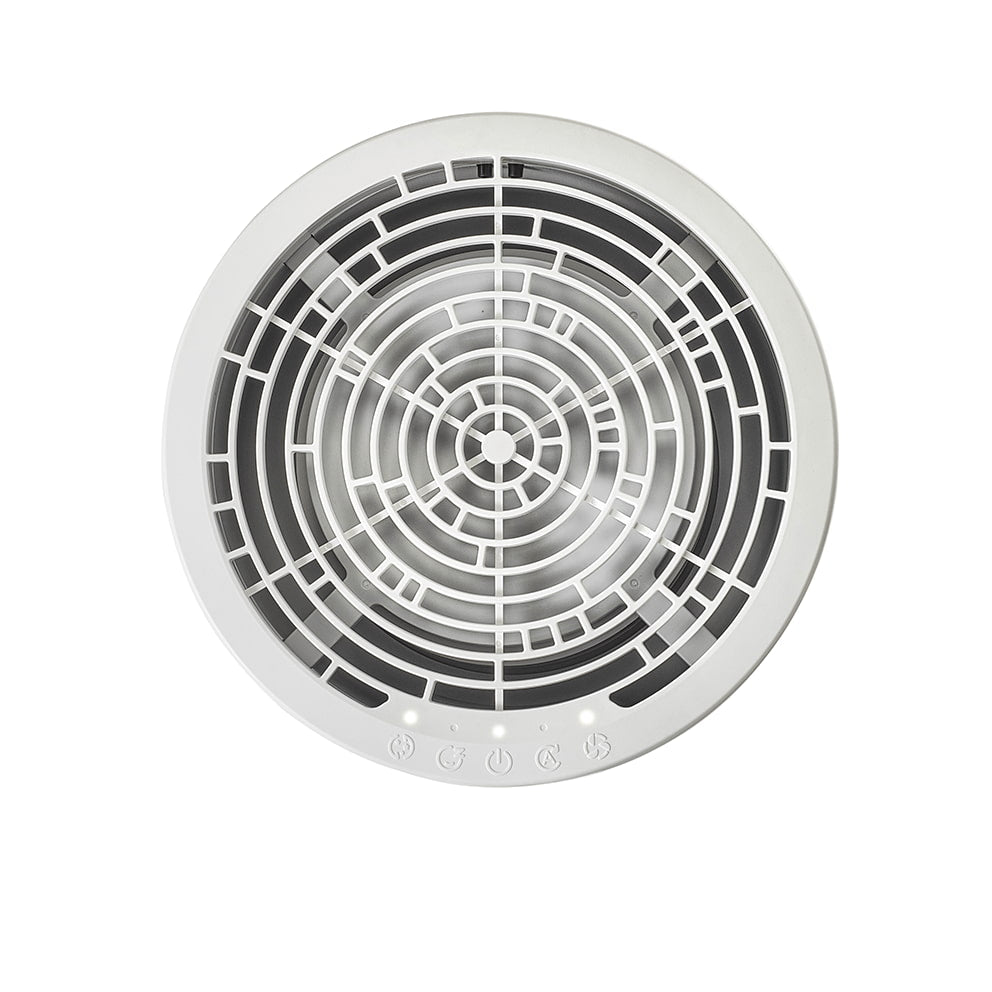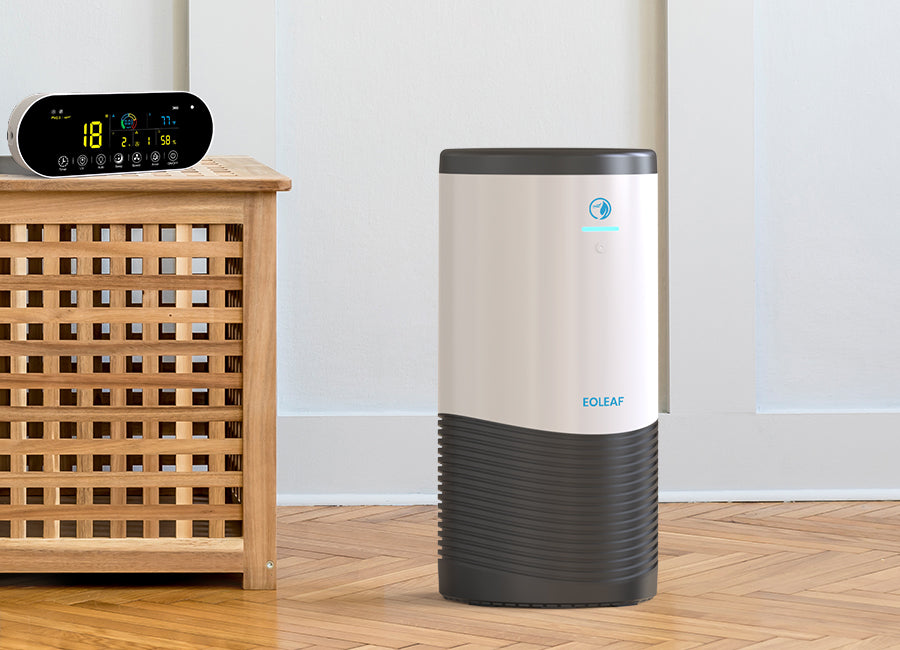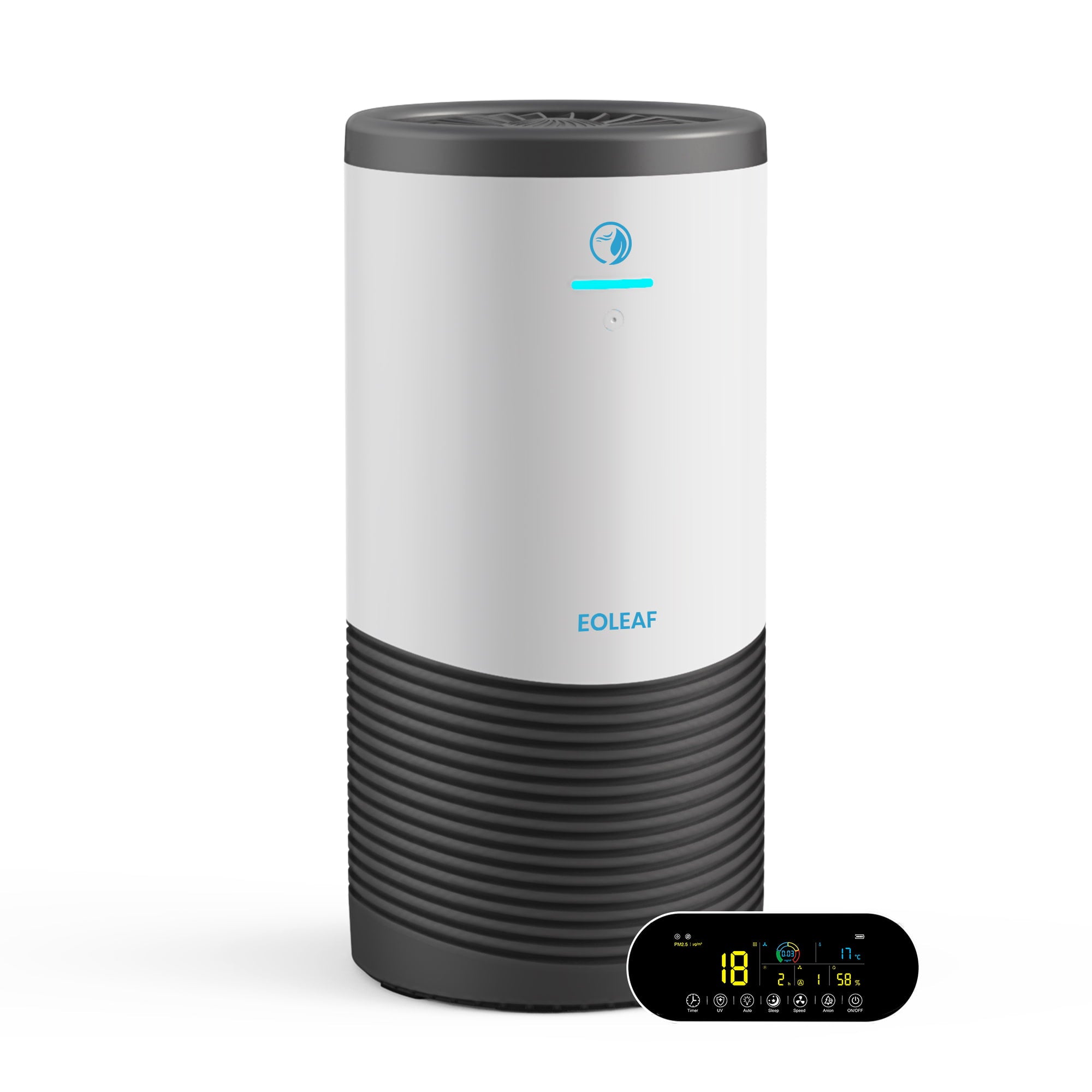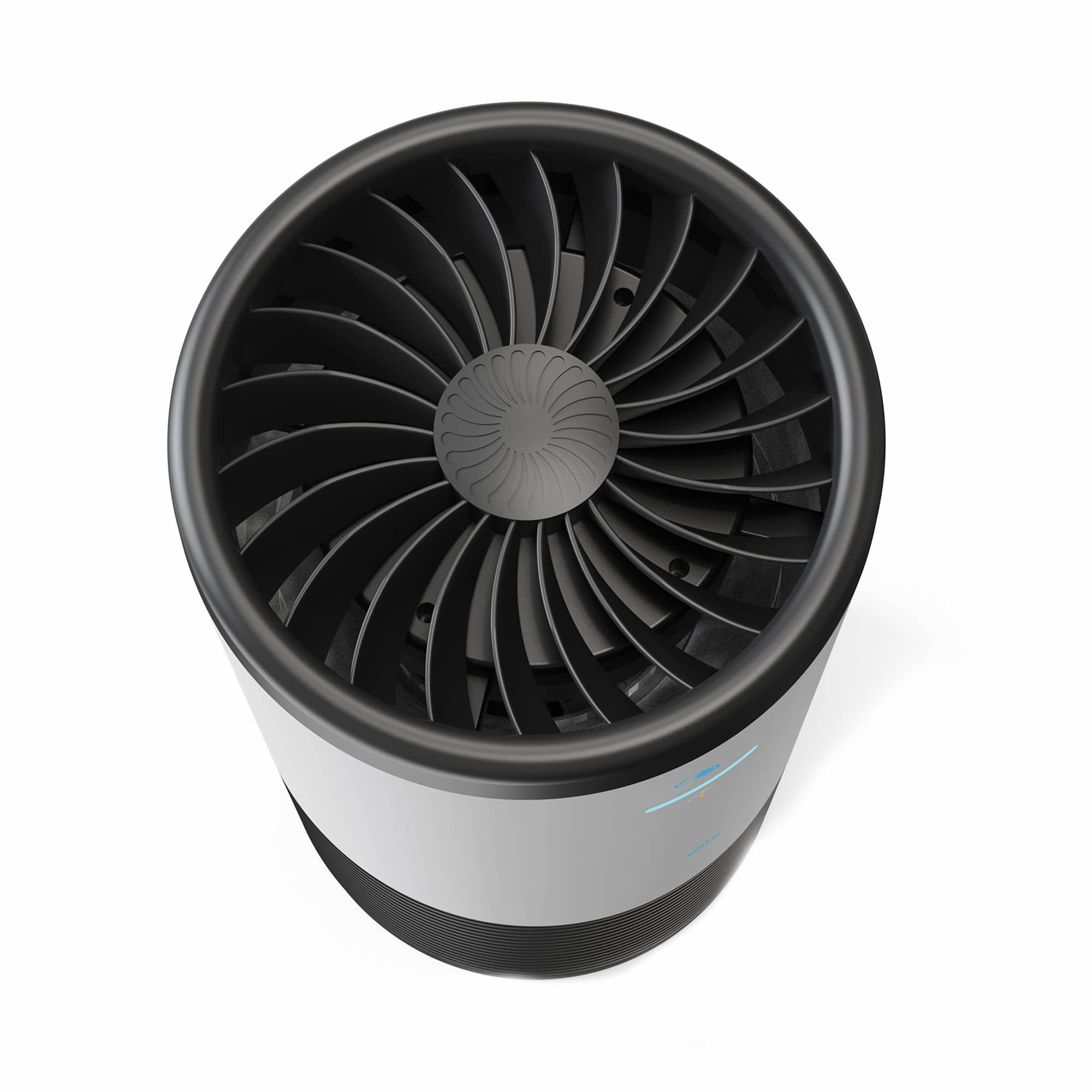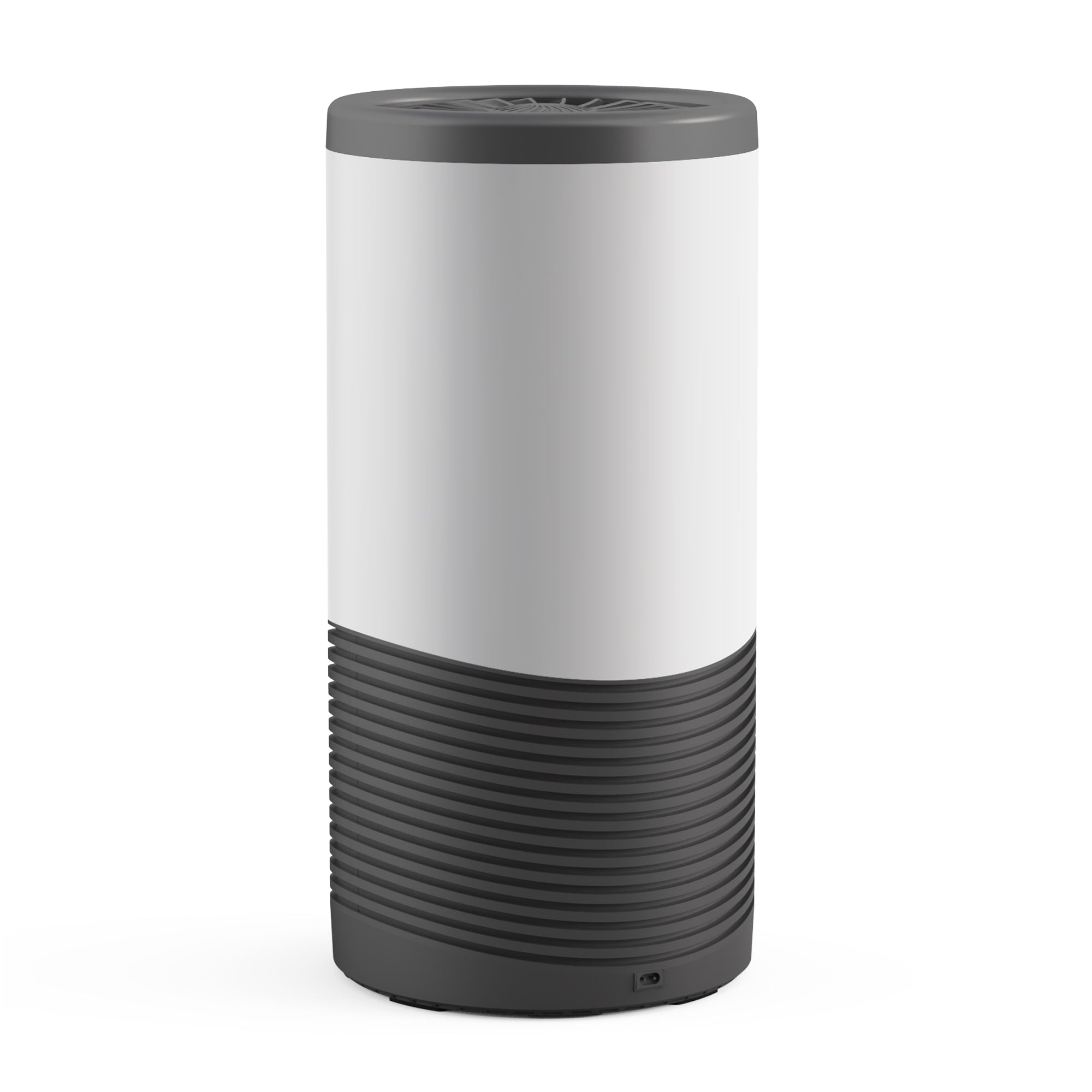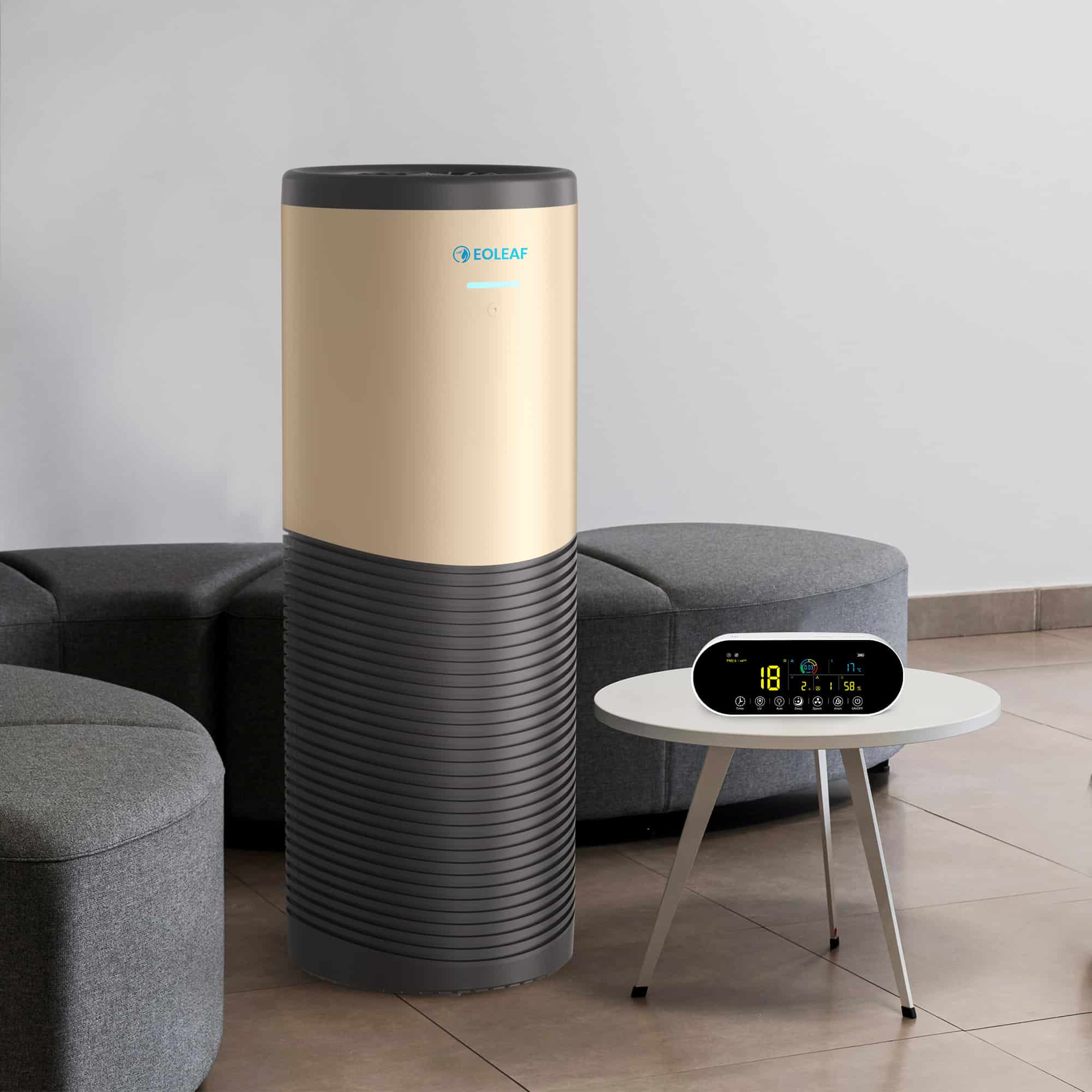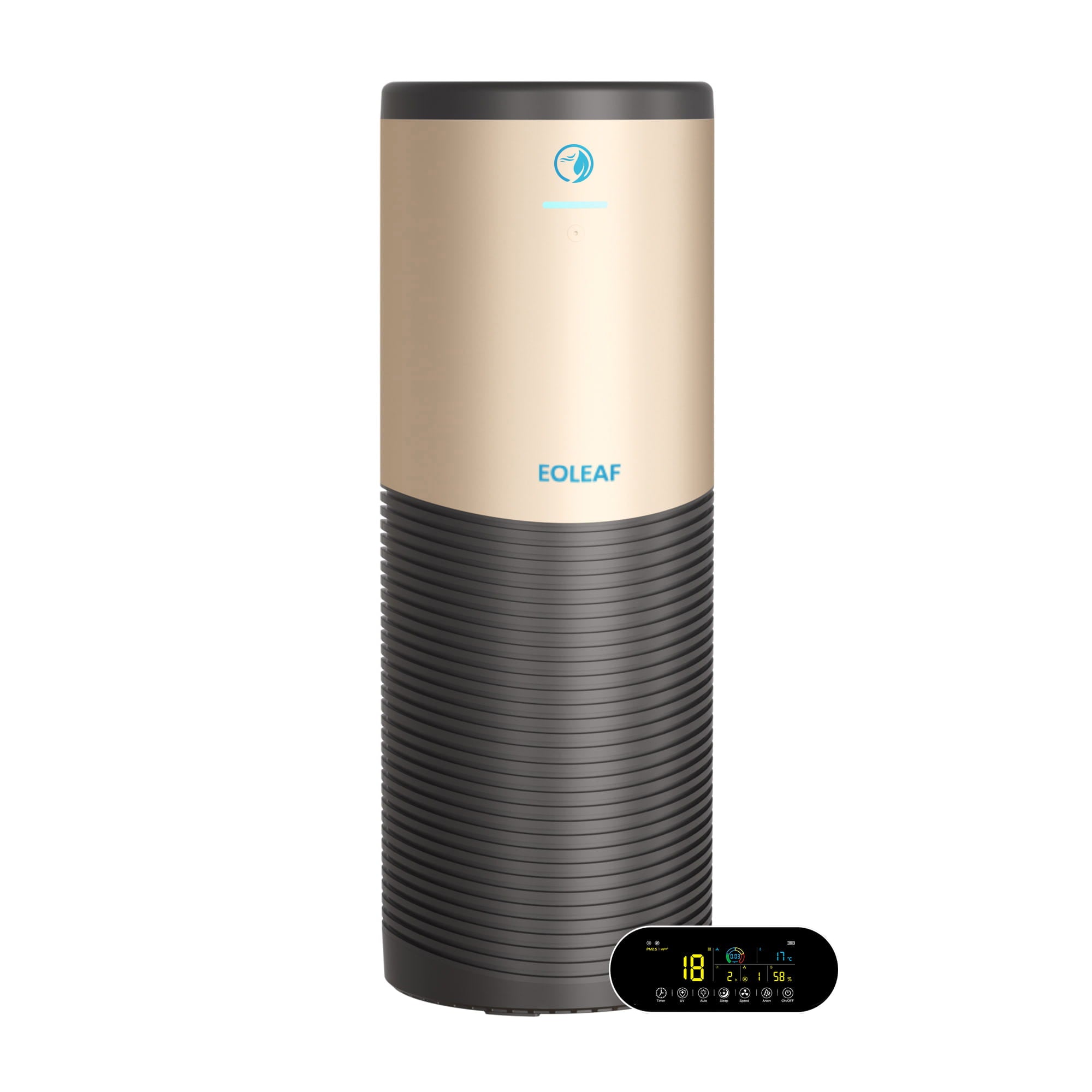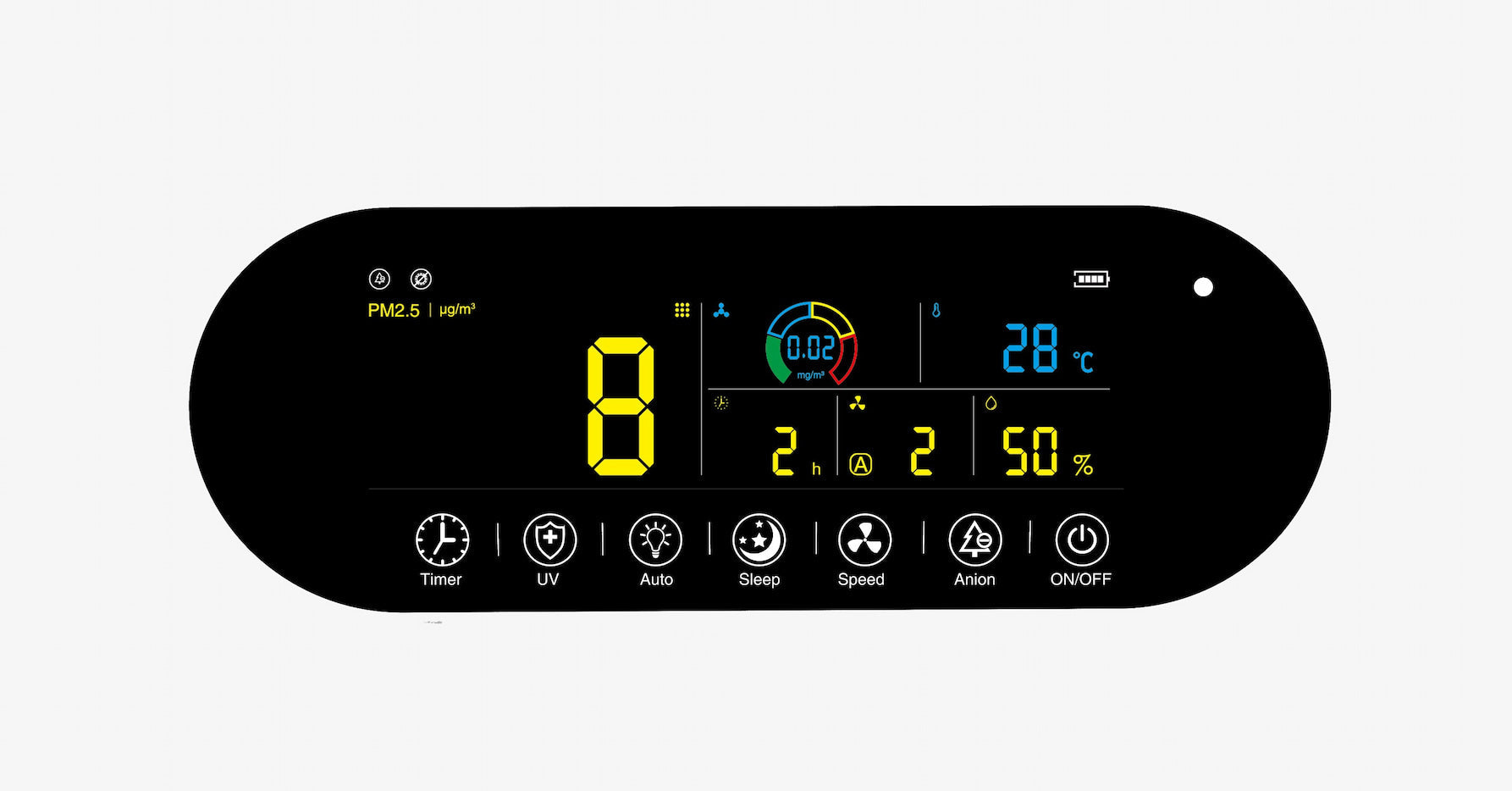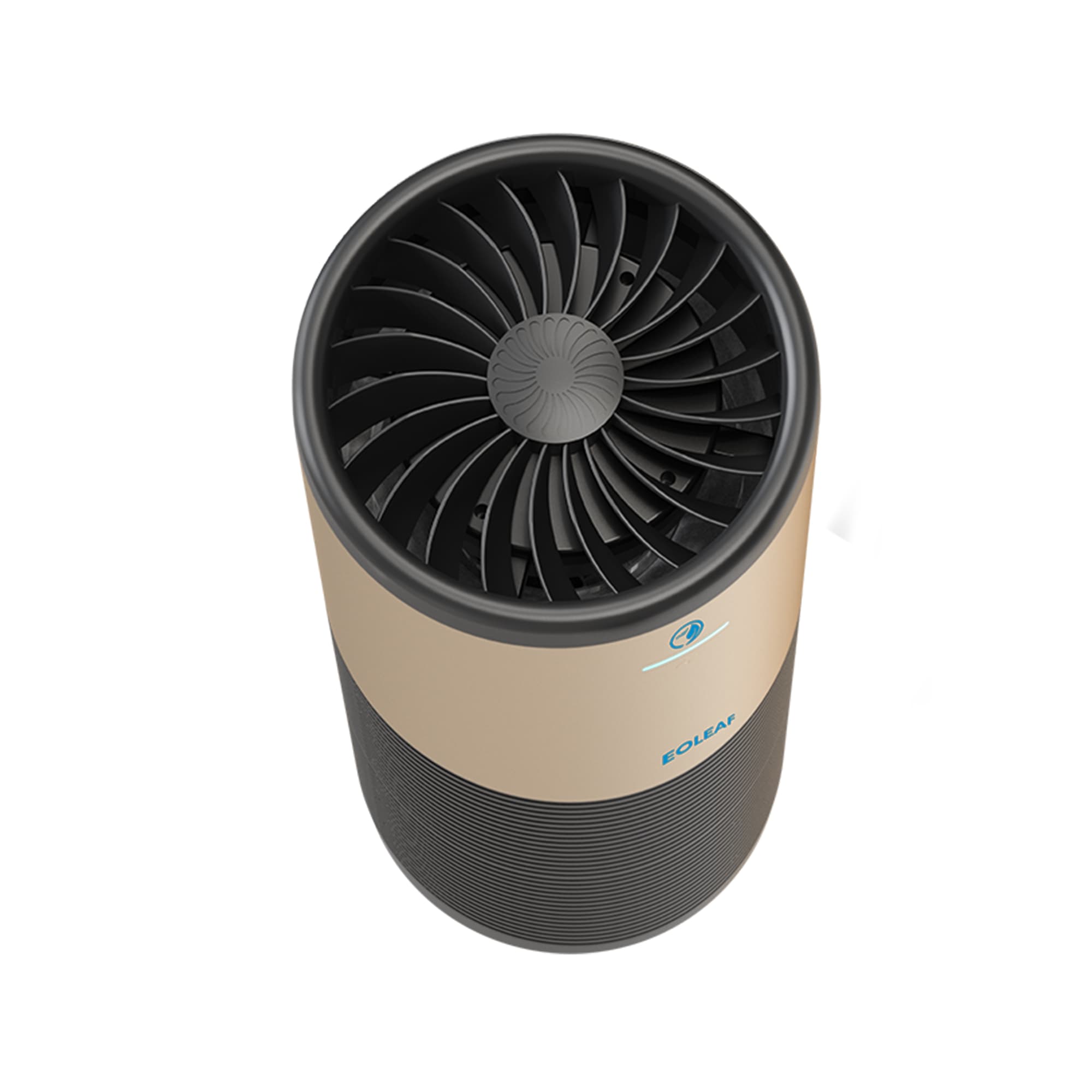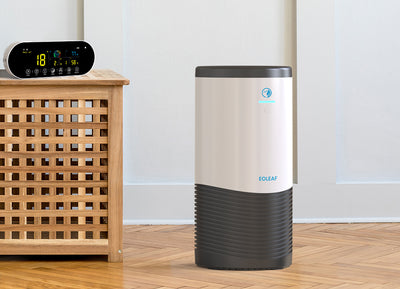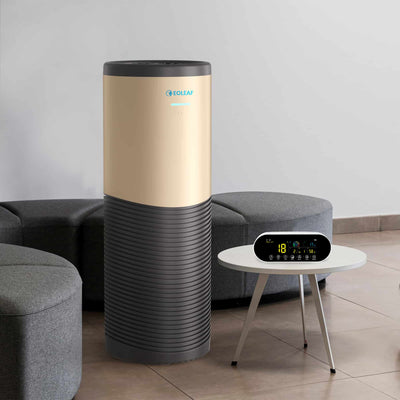Mental health and air pollution
Air pollution’s effects on physical health have long been documented by scientific studies. According to a study by the University of Chicago, the effects of poor air quality have been found to take two years off the global average life expectancy1. Now, studies are starting to focus on the impact of air pollution on mental health, particularly on depression and anxiety. Read more below to find out more about how air pollution impacts our mental well-being and what we can do to reduce our risk.

What are depression and anxiety?
Depression is a serious though quite common mental illness that impacts one in 6 adults in the UK with women being twice as likely to experience depression as men2. It impacts all facets of a person’s daily life: the way they feel, how they think, and how they act. For many people, it impacts their physical health as well, often making it difficult to function at home and at work.
Rates of depression increased from 10% to 17% as a result of the coronavirus pandemic. Symptoms can vary greatly depending upon the individual (from mild to severe) but must last at least two weeks to be considered depression. Some of those symptoms include:
- Feeling sad
- Loss of interest in activities once enjoyed
- Changes in appetite (weight loss or gain)
- Changes in sleep patterns
- Loss of energy and fatigue
- Thoughts of death or suicide3
Depression is associated with other mental difficulties such as anxiety, stress, and loneliness.
Feelings of anxiousness are experienced by most of us to a degree, but in people suffering from anxiety, or generalised anxiety disorder (GAD), these feelings are difficult to control and can be all-consuming. Worries begin to impact these individuals’ daily lives to the point where they can no longer remember a time when they felt relaxed. The most common symptoms of GAD are feeling restless or worried, inability to rest or sleep, and/or dizziness and heart palpitations4.

How does poor air quality impact mental health?
Inflammatory properties of air pollutants
Due to the small size of these particles, once inhaled through the lungs and the respiratory system, they can quickly move throughout the rest of the body by entering the bloodstream. They are then transported to other organs such as the heart and brain.
The main way that fine particle pollution, also known as particulate matter, leads to mental health disorders is through inflammation and irritation. Chronic inflammation as a result of air pollution exposure can damage both neurons and regulatory responses in the nervous system. Studies have linked chronic inflammation to depression, bipolar disease, mood disorders, and psychotic disorders7.
Typically, when air pollution enters the brain, it causes inflammatory responses via the following pathways:
- By crossing the blood-brain barrier, compromising the body’s defence system against toxins and pathogens found in the blood
- By entering the olfactory neurons that connect the nose to the brain, damaging those neurons
- By entering the digestive system (the ‘second brain’) through the stomach, impacting our mental state and overall well-being7
In addition to mental disorders, air pollution exposure causes damage to other organs throughout the body. This leads to respiratory disease (and aggravation of respiratory conditions such as asthma), various cancers like lung cancer, stroke, and heart attack5.
Air pollution and mental health
A long-term study conducted in the UK and China followed 390,000 patients over a period of 11 years. The study found that long-term exposure to air pollutants – particularly nitrogen dioxide (NO2), nitric oxide (NO), and particulate matter (PM) like PM2.5 – can lead to an increased risk of depression and anxiety. In fact, a relatively small increase in recorded NO2 concentrations led to a 32% increase in the risk of needing outpatient (community-based) treatment and an 18% increase in hospital admissions for mental health disorders8. When found in our breathing air, NO2 is typically released through the burning of fossil fuels by road traffic, especially by diesel vehicles.
A child and adolescent psychiatrist and co-chair of Doctors for the Environment Australia, Cybele Dey, claims that a link between air pollution and mental health has indeed been established. However, the exact pathway is still being determined. As seen above, some studies have found that poor air quality affects the central nervous system. Others believe that air pollution causes the body to release harmful substances that affect the blood-brain barrier5.
Another researcher and associate professor at Columbia University, Marianthi-Anna Kioumourtzoglou, states that air pollution, especially particulate matter like PM2.5, is also responsible for exacerbating existing conditions. For people who are already experiencing depression, anxiety, and/or other mental health disorders, days of higher pollution levels lead to an increase in hospital admissions for these disorders. Furthermore, increased levels of air pollution are also linked with a higher rate of suicide and suicidal behaviours. Throughout Kioumourtzoglou’s studies on air pollution’s effect on health, she and her colleagues have also found links with neurodegenerative diseases like Alzheimer’s and Parkinson’s5.
Air pollution’s impact on learning, attention span, and intelligence
Throughout Dey’s studies on children and teens, she has also noted a link between air pollution and problems with learning and attention span. This was proven by a study in the United States that examined one of the largest gas leaks in the country’s history. Following the leak, the gas company at fault for the leak was ordered to install air filters in all schools within a 5-mile radius. As a result of the air filter installations, academic performance in these schools rose substantially (a 0.2 standard deviation increase and the benefits continuing into the years that followed). What remains the most interesting aspect of this study is that during the gas leak (and prior to the air filter installations), tests showed no evidence of natural gas pollutants in the schools. This implies that the noted improvement in student academic achievement was a result of the air filters’ removal of common air pollutants like particulate matter, particularly PM2.56.
Another study based in China found that long-term exposure to air pollution can impede cognitive performance, specifically impacting maths and verbal test scores. In this regard, the effects of chronic exposure to air pollution on verbal skills become more pronounced as a person ages, most notably for men9.

Multiple studies have focused their efforts on understanding the link between air pollution and the effects it has on children’s mental health. The summarised results are as follows:
- Children who are exposed to air pollution at a critical age of mental development are at the highest risk of severe mental disorders in adulthood10
- Exposure to poor air quality increases the risk of affective disorders, suicidal behaviours, and brain abnormalities in young people, and the need for future studies to analyse the effects of specific pollutants is crucial11
- A study in the United States and Denmark found that air and other types of environmental pollution exposure whilst young leads to a higher risk of bipolar disorder and other psychiatric disorders like schizophrenia, major depression symptoms, and borderline personality disorders12
- A study in a hospital paediatric psychiatric emergency department found that high levels of air pollution may lead to exacerbation of pre-existing mental health disorders and an increase of visits to the paediatric psychiatric ward in hospital13
How can we protect our mental health from the dangers of air pollution?
Decrease contributions to air pollution
The best way to protect our minds and bodies from polluted air is to reduce air pollution as a whole. We can all make an effort by decreasing our contributions to air pollution. To do this, we can favour biking, walking, or public transport to individual vehicle transportation whenever possible. We can also reduce or stop smoking, heat our homes and cook with electric-powered or induction appliances rather than with wood or natural gas. It is also recommended to opt for natural products wherever possible, avoiding polluting products containing volatile organic compounds (VOCs). Furthermore, be sure to regularly ventilate your home and office by opening windows and doors!
Refer to our list of more recommendations for curbing your contributions to air pollution here.
Monitor indoor and local air quality
Another simple way to protect yourself and your children from the dangers of air pollution is to stay abreast of air pollution trends in your area. To do this, refer to websites like AQE (Air Quality in England) or UK Air. By following the status of your local air quality, you will understand when is best to keep your windows closed to protect your indoor air quality (IAQ) and when to limit your time outdoors.
Purify your indoor air
Unfortunately, as diligent as we may be in making the above efforts to curb air pollution, 99% of people on Earth breathe air that exceeds the WHO’s recommended level of air pollutants. That said, the best thing we can do is to protect ourselves in the places where we spend the most time (at home and at work) by investing in and installing an air purifier.
Eoleaf’s air purifiers for homes and office spaces are just what the doctor ordered. All of our devices contain 8 medical-grade filtration technologies including HEPA-certified filters, activated carbon filters, UV sterilisation, and ionisation. Our air purifiers are ready to protect you, your body, and your mental health from the dangers of air pollution. By breathing pure air, you can protect yourself from the serious negative health effects of polluted air.

References
1 Cho, K. K. (2023, February 2). Long-term exposure to pollution linked to depression, study finds. The Washington Post. Retrieved February 15, 2023, from https://www.washingtonpost.com/health/2023/02/02/air-pollution-depression-anxiety-study/
2 Pindar, J. (2022). Depression statistics UK: 2022 data. Champion Health. Retrieved February 15, 2023, from https://championhealth.co.uk/insights/depression-statistics/
3 Torres, F. (2020, October). What is depression? Psychiatry.org - What Is Depression? Retrieved February 15, 2023, from https://www.psychiatry.org/patients-families/depression/what-is-depression
4 NHS. (2022, October 5). https://www.nhs.uk/mental-health/conditions/generalised-anxiety-disorder/overview/ . NHS. Retrieved February 15, 2023, from https://www.nhs.uk/mental-health/conditions/generalised-anxiety-disorder/overview/
5 Christensen, J. (2023, February 1). Long-term exposure to dirtier air can increase your risk of depression or anxiety, study finds. CNN. Retrieved February 15, 2023, from https://edition.cnn.com/2023/02/01/health/pollution-depression-anxiety/index.html
6 Gilraine, Michael. (2020). Air Filters, Pollution and Student Achievement. (EdWorkingPaper: 19-188). Retrieved from Annenberg Institute at Brown University: https://edworkingpapers.com/ai20-188
7 Bishop, S. (2022, November 9). Air quality, cognition, and mental health: How air pollution impacts the brain. Clarity. https://www.clarity.io/blog/air-quality-cognition-and-mental-health-how-air-pollution-impacts-the-brain
8 Carrington, D. (2021, August 27). Air pollution linked to more severe mental illness – study. The Guardian. https://www.theguardian.com/environment/2021/aug/27/air-pollution-linked-to-more-severe-mental-illness-study
9 Zhang, X., Chen, X., & Zhang, X. (2018). The impact of exposure to air pollution on cognitive performance. Proceedings of the National Academy of Sciences, 115(37), 9193–9197. doi:10.1073/pnas.1809474115
10 Bhui, K., Newbury, J., Latham, R., Ucci, M., Nasir, Z., Turner, B., . . . Coulon, F. (2023). Air quality and mental health: Evidence, challenges and future directions. BJPsych Open, 9(4), E120. doi:10.1192/bjo.2023.507
11 Xie, H., Cao, Y., Li, J., Lyu, Y., Roberts, N., & Jia, Z. (2023). Affective disorder and brain alterations in children and adolescents exposed to outdoor air pollution. Journal of Affective Disorders, 331, 413–424. doi:10.1016/j.jad.2023.03.082
12 Khan, A., Plana-Ripoll, O., Antonsen, S., Brandt, J., Geels, C., Landecker, H., Sullivan, P. F., Pedersen, C. B., & Rzhetsky, A. (2019). Environmental pollution is associated with increased risk of psychiatric disorders in the US and Denmark. PLOS Biology, 17(8). doi:10.1371/journal.pbio.3000353
13 Warner E and Strawn J (2023) Risk Factors for Pediatric Anxiety Disorders, Child and Adolescent Psychiatric Clinics of North America, 10.1016/j.chc.2022.10.001, 32:3, (485-510), Online publication date: 1-Jul-2023.
Eoleaf's range of air purifiers
NeoPur 400 air purifier
40 m² (450 sq ft) coverage area - Smart & Connected
TeraPur 600 air purifier
80 m² (850 sq ft) coverage area - Ultimate all-in-one
AltaPur 700 air purifier
120 m² (1300 sq ft) coverage area - Professional model
PurCar air purifier
HEPA H13 Filter & Ioniser - For all vehicles


